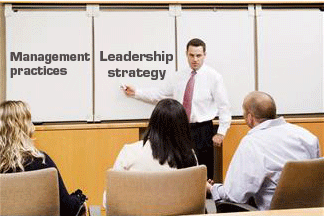Browse by Tag
- "Real" Innovation (2)
- Alignment (6)
- Business Innovation (9)
- Business Plan (2)
- Business Plans (1)
- Creativity (24)
- Critical Success Factors (4)
- Entrepreneurship (9)
- Global Competiveness (4)
- Human Side (11)
- India (1)
- Innovation (4)
- Innovation Consulting (18)
- Innovation Killers (3)
- Innovation Management (18)
- Innovation Tools (17)
- Innovation Training (24)
- Innovations (7)
- Inventions (16)
- IT Innovation (1)
- Leaders (5)
- Leadership (20)
- Leadership Development (13)
- Organizational Leadership (2)
- Organizational Strategy (20)
- Personal Values (6)
- Prediction (5)
- Strategic Innovation (38)
- strategic planning process (4)
- Strategy (3)
- Training (1)
- Vision (5)
- Weekly Dose (8)
Posts by Month
- 2014
- 2013
- 2012
- 2011
- 2010
- 2009
- 2008
- 2006
Convergence Drives Strategic Planning in 2013 - Part 2
Part Two: Global Scale "Convergent Thinking"- The New Main Course?
The need for "convergent thinking" is not only still on the table, but may well become the centerpiece of strategic planning for many organizations. But, just because this trend is rapidly growing, doesn't mean it's an easy road to success.
Markets are fickle. They can seem to arise overnight and die off as quickly. Studies indicate 60% of employees are disengaged and frustrated with their work and too many executives are still relying on management practices rather than leadership. This only serves to complicate the risks of innovation, not to mention what it can do to a new market entry strategy. Many organizations need to begin right here with a leadership strategy to create a more engaged, innovative and stable workforce.

Add to that the need for an aligned vision and necessary support structures to navigate the convergence of commercial enterprise with governments and NGO's, and the risks of moving into new consumer groups, platforms and new geographies, can be daunting. What shifts are necessary to consider when moving globally and what internal support is required? How ready are you to innovate?
When moving from marketing partnerships on local levels to sustainable global markets, any undertaking in international development must consider the growing role of cross-sector convergence. This entails not only possibilities for new and broader markets as technologies and business sectors converge, but must also consider how convergence is playing an increasingly key role in forming solutions to the world's most pressing issues in developing countries.
Commercial self-interest, NGO's and governments are increasingly coming together to find solutions. These hybrid organizations are challenging today's sector boundaries and outdated paradigms as never before, shifting the emphasis away from income, organizational structures and stereotypical roles. With a growing awareness that markets are inextricably linked to solutions for problems such as extreme poverty, drought, and disease in developing countries, considerations of impact and outcome are coming to the fore.

To satisfy business self-interest in new markets, a global sense of community must emerge from the global development of markets. Success in the Emerging Market Economy is a combination of access to customers and resources plus willingness and a plan to help build sustainable communities.
When it comes to the global marketplace, business, government and NGO's all see global development as the best way to create opportunities for millions of people to secure a decent life and increase prosperity. If you want the resources and the market, you must help build the surrounding sustainable community to support it.
License to operate must contain certain elements to succeed, varying by region and company size, including:
- Compliance with law
- Risk management
- Reputation enhancement
- Value added to communities
Companies must address sustainability factors from human resource management and respect for local cultural values to eco-efficiency and social responsibility including helping to limit climate degradation and loss of biodiversity. For example, as viewed on the Chinese cable network in the past few weeks, workers are rising up in protest of environmental degradation. Very simply, they too want to breathe clean air, drink clean water and be treated with respect. Good working relationships at all levels help create a more even road for sustainability.
The business case for sustainability in emerging markets can actually work to pinpoint opportunities in Asia, Africa, Central and Eastern Europe, Latin America and the Middle East, but be aware responsible business conduct needs to step up. To develop new global markets built on ever expanding cross-sector convergences, strategy must now include linking to the communities involved. It's looking like these markets will arise from the convergence of solutions built on innovative relationships responding to converging challenges and employing new approaches. Hiding behind outdated management practices - no longer an option.
What are your challenges and what value do you see in utilizing an Innovation Readiness Assessment for strategic planning?
You can download FREE articles at www.desai.com/resources.
Tags: Strategic Innovation, Organizational Strategy, strategic planning process

